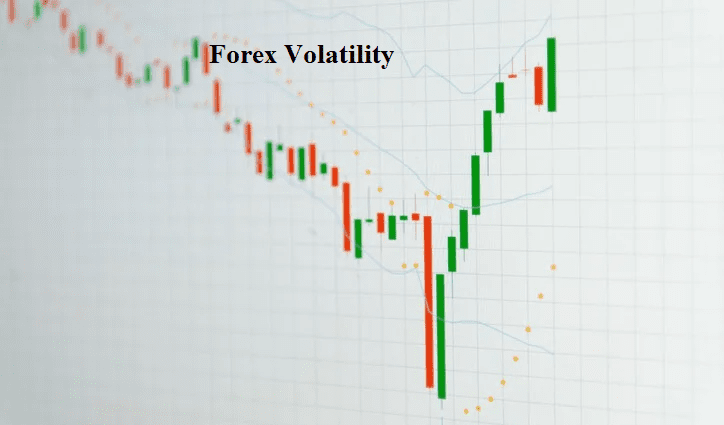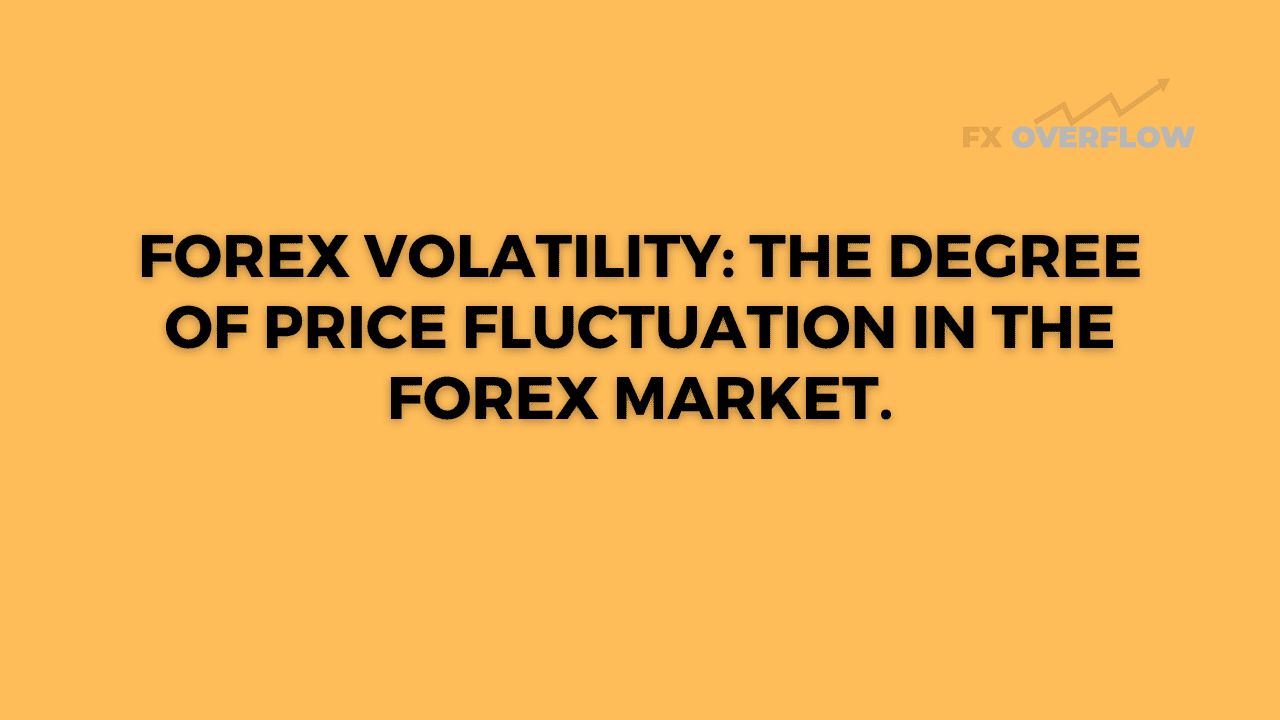Forex Volatility: The Degree of Price Fluctuation in the Forex Market
In the fast-paced world of finance, the foreign exchange market, commonly known as Forex, plays a crucial role in facilitating international trade and investment. Forex is the largest and most liquid financial market globally, with trillions of dollars being traded every day. One of the significant aspects that traders and investors closely monitor in the Forex market is volatility. In this article, we will delve into the concept of Forex volatility, its impact on trading, and strategies to navigate through the fluctuations.
Table Content
1. What is Forex Volatility?
2. Measuring Forex Volatility
3. Factors Affecting Forex Volatility
4. Understanding the Impact of Forex Volatility
5. Strategies to Manage Forex Volatility
6. Footnote
What is Forex Volatility?
Forex volatility refers to the degree of price fluctuation observed in currency pairs over a specific period. It is a measurement of the market's uncertainty, indicating how rapidly or slowly currency prices can change. Volatility is a key factor that drives trading opportunities, as it directly influences the potential for profit or loss.

Measuring Forex Volatility
To measure Forex volatility, various tools and indicators are employed. One commonly used indicator is the Average True Range (ATR). The ATR calculates the average range between the high and low prices over a specified period, providing traders with valuable insights into market volatility. Additionally, the Bollinger Bands, which consist of an upper and lower band around a simple moving average, are frequently used to gauge market volatility.
Factors Affecting Forex Volatility
Several factors contribute to Forex market volatility. Some of the primary drivers include:
1. Economic Indicators
Economic indicators, such as GDP growth, employment data, and inflation rates, have a significant impact on Forex volatility. Positive economic data may strengthen a country's currency, leading to lower volatility, while negative data can trigger higher volatility.
2. Geopolitical Events
Geopolitical events, such as elections, conflicts, and trade agreements, can cause sudden and unpredictable fluctuations in the Forex market. Traders often closely monitor news related to these events to make informed decisions.
3. Central Bank Policies
Central banks play a vital role in influencing Forex volatility. Decisions on interest rates, monetary policies, and interventions in the currency markets can all lead to significant price movements.
4. Market Sentiment
Investor sentiment and market psychology can create waves of volatility. Positive or negative sentiment towards a particular currency can drive its price up or down.
Understanding the Impact of Forex Volatility
High volatility in the Forex market can present both opportunities and risks for traders. While it offers the potential for substantial profits, it also increases the likelihood of significant losses. Understanding how to navigate through volatile periods is crucial for traders looking to succeed in Forex.
Strategies to Manage Forex Volatility
1. Risk Management
Effective risk management is essential when trading in volatile markets. Traders should employ stop-loss orders to limit potential losses and use appropriate position sizing to control the amount of capital at risk.
2. Diversification
Diversifying a trading portfolio across different currency pairs can help spread risk. While one currency pair may experience high volatility, others may remain relatively stable.
3. Utilizing Volatility Indicators
Using technical indicators that measure volatility, such as the ATR or Bollinger Bands, can aid traders in identifying potential entry and exit points during fluctuating market conditions.
4. Staying Informed
Keeping abreast of economic events and news updates is crucial to understanding the driving forces behind Forex volatility. Traders should be proactive in seeking relevant information and analyzing its potential impact on the market.
Footnote
Forex volatility is an inherent aspect of the currency market, shaping trading opportunities and risks for market participants. Understanding how to interpret and manage volatility is essential for successful trading. By employing risk management strategies, diversifying portfolios, and staying informed, traders can navigate through volatile periods and potentially capitalize on price fluctuations. Remember, while volatility offers opportunities, it also requires caution and a well-thought-out approach to ensure long-term success in the Forex market.
Whether you are an experienced trader or a newcomer to the world of Forex, staying updated and adapting to market conditions will be instrumental in achieving your trading goals. The foreign exchange market is a dynamic and ever-changing landscape, and mastering the art of trading amid volatility will set you apart as a skilled Forex trader.
So, embark on your journey in the Forex market, armed with knowledge and strategies, and confidently navigate the waves of volatility that shape this exciting financial realm.











Discussion